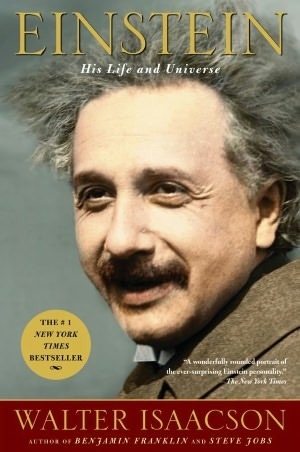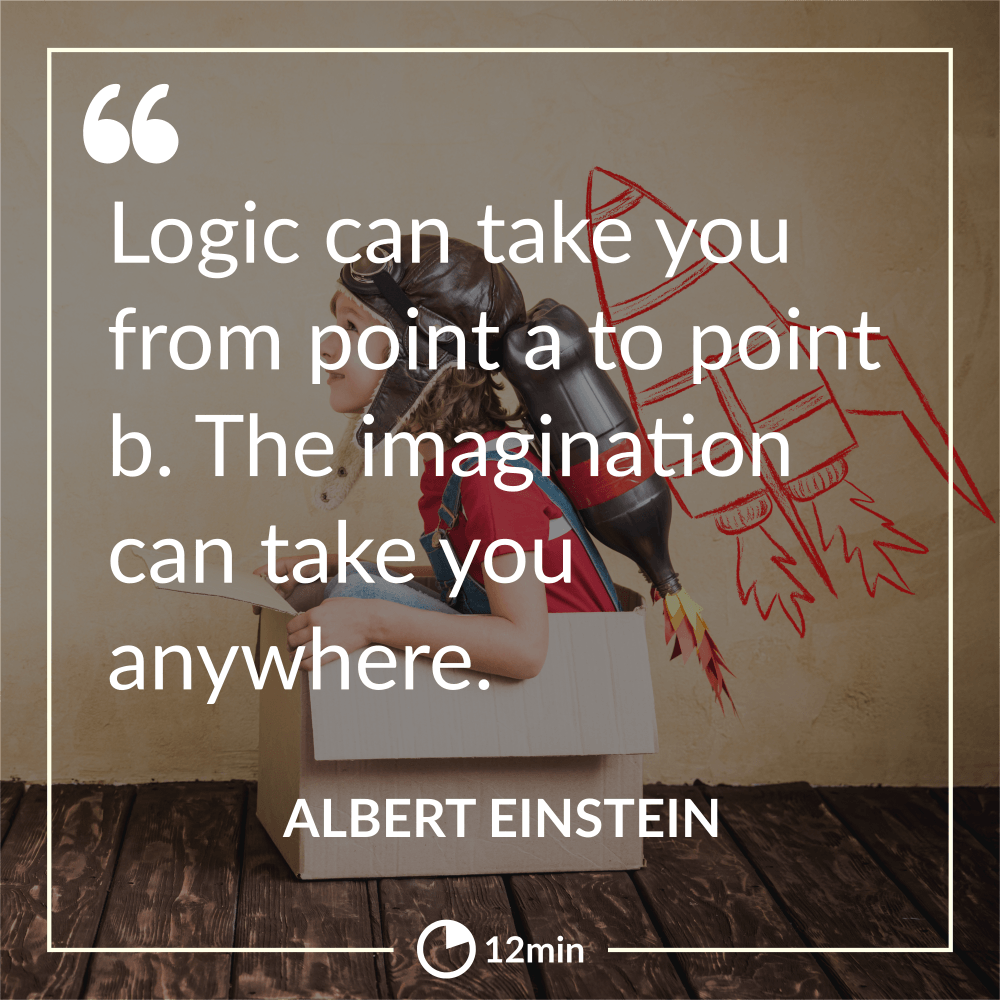Einstein Summary

4 min read ⌚

MicroSummary: Albert Einstein is rightfully considered one of the most influential people in history. Walter Isaacson’s biography delves deep inside his life and universe, trying to unravel the origins of his genius and his unconventionality, and painting a portrait of one extraordinary person with a life-long sense of childlike wonder.
His Life and Universe
Albert Einstein is not merely an icon of the past century – he’s one of the greatest scientists ever. And this insightful Walter Isaacson biography is so good we’ve included it among the best 15 in history.
About Walter Isaacson
Walter Isaacson is a University Professor of History and a major biographer. In addition to “Einstein,” he has also written few other biographies – “Benjamin Franklin,” “Kissinger,” “Leonardo da Vinci” – including the highly revered one of Steve Jobs.
“The Innovators” and “The Wise Men” are, more or less, group biographies of few other extraordinary people.
“Einstein Summary”
Albert Einstein was born on 14 March 1879 in a secular Jewish family. When he was four and sick in bed, his father gave him a compass; and that was the first time he experienced something he’d crave for up to the time of his death.
Scientific wonder.
However, it seems that the thing which made Einstein so special was the fact that, in addition to science, he was always interested in art and philosophy. His mother signed him up for violin lessons, and a family friend, Max Talmud (or: Max Talmey), introduced him to the works of Bernstein and Kant’s “Critique of Pure Reason.”
Talmud says that Einstein understood them perfectly. Even though he was barely 13 years old.
Four years later he enrolled at the Zürich Polytechnic, and there he met his future wife, the Serbian mathematician Mileva Marić. And it seems that Einstein was many things to many people, but he was not a good husband to Mileva, and barely a good father to their two sons, Hans Albert and Eduard.
After divorcing Mileva, Einstein had a second wife: his first cousin, Elsa. He didn’t treat her too nice as well. In fact, he had many extramarital affairs. And he considered her basically his housewife.
Einstein, obviously, spent most of his time working.
And, in 1905, it paid dividends. In the form of four papers published in the “Annalen der Physik” journal. So good that they are now called the Annus mirabilis papers (“The Papers of the Extraordinary Year”).
So good that they are the basis of modern physics.
But, this is Einstein we’re talking about; and, of course, his scientific achievements didn’t end up there. A decade later he would turn one of these papers – about the special theory of relativity – into an even more all-encompassing model of the world, “The General Theory of Relativity.”
However, this is where things started to get a bit strange!

Einstein, the man who rebelled in the face of conventional physics for so long, spend the rest of his life working to disprove quantum theory. And for a somewhat unscientific reason: he was a deist and determinist and didn’t want to believe that so many things about the universe are uncertain.
But, the world around him certainly was. Being a Jewish, he had to leave Germany for the United States, from where he oversaw some of the consequences of his investigations.
Namely, the nuclear bombs dropped on Hiroshima and Nagasaki.
And because he was a socialist, he wasn’t too welcomed even in the United States. The FBI followed him for years and collected over 14 boxes of information about him.
Einstein died in 1955.
And he was working even on his deathbed.
Key Lessons from “Einstein”
1. Standing on the Shoulders of Giants
2. Imagination Is More Important Than Knowledge
3. Genius Doesn’t Necessarily Transfer Between Categories
Standing on the Shoulders of Giants
“If I have seen further,” wrote Isaac Newton to polymath Robert Hooke, “it is by standing on the shoulders of Giants.”
Something worth thinking about as often as possible. We tend to think of geniuses as people capable of creating original things out of nothing. But, in fact, it is never so.
Einstein developed his theories by building on the work of previous great minds, such as Henri Poincaré, Max Planck, and even Phillip Lenard (who was an anti-Semite and crusaded against him). Some think that, even if Einstein hadn’t existed, the world of science was ripe for his findings.
Imagination Is More Important Than Knowledge
Einstein believed that schools are not there so that you can collect facts; but so that they can teach you how to think. And thinking is a very complex process, which is neither purely creative nor exclusively scientific.
Consequently, it’s always good if you can combine both modes of thought.
The best way to do this is by visualizing everything.
Genius Doesn’t Necessarily Transfer Between Categories
In 1952, Albert Einstein was offered by then Prime Minister of Israel, Ben Gurion, the position of President of Israel. Albert Einstein, however, declined. It was not because of his age, or because of the fact that he may have been to secular.
It was because he didn’t believe that he was capable of being a President. Simply put, even if you’re the ultimate genius in one sphere, you may be just a regular Joe in another.
Genius is a strange category, but it’s certainly not transferable.
Like this summary? We’d Like to invite you to download our free 12 min app, for more amazing summaries and audiobooks.








